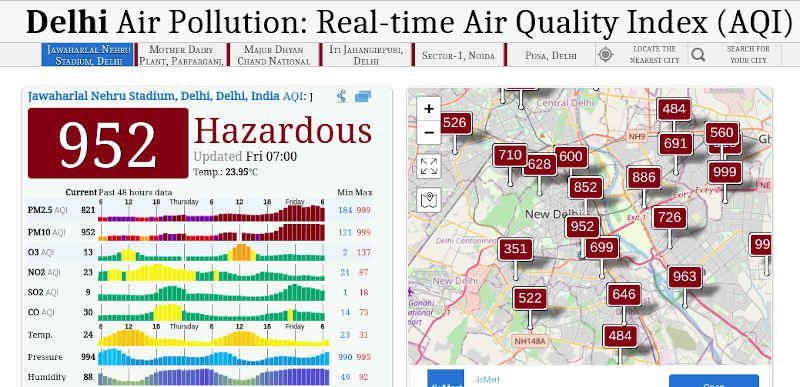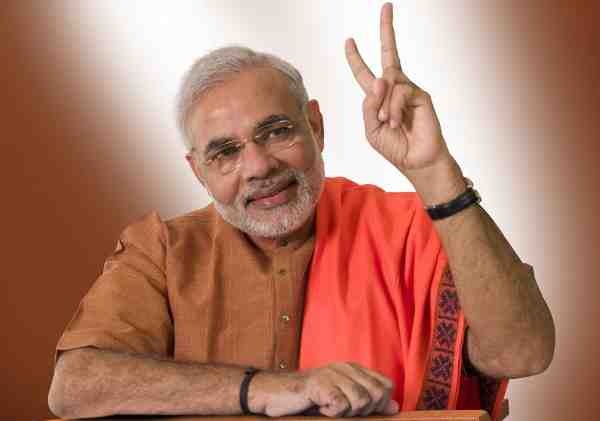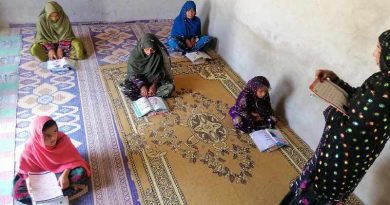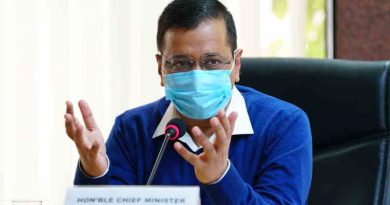Schools Closed as Air Pollution Killing People in Delhi. Pollution Lockdown Expected

While Delhi continues to be the most polluted national capital on planet earth, a staggering number of deaths are taking place due to pollution in the city.
By Rakesh Raman
After coronavirus (Covid-19) lockdowns during the past over a year, now people of Delhi are expected to face pollution lockdown, as air in India’s capital New Delhi has become extremely poisonous.
Delhi chief minister Arvind Kejriwal announced today that Delhi schools will remain closed from Monday (November 15) and students will attend only online classes.
Also, construction activity has been banned and government officials are advised to work from home. As the air quality continues to deteriorate, the Supreme Court has asked the government to impose 2-day lockdown in Delhi so that people are not exposed to toxic air.
While Delhi continues to be the most polluted national capital on planet earth, a staggering number of deaths are taking place due to pollution in the city.
A global environment research organization Greenpeace Southeast Asia reveals that pollution killed 54,000 people in just one year (2020) in Delhi while the city is at the top of a list of world’s five most polluted cities. In other words, pollution is killing nearly 150 people everyday in Delhi while hundreds of Delhi residents are falling sick.
The Greenpeace research reveals that these are avoidable deaths – one death per 500 people in Delhi’s population of 30 million – which are taking place due to PM2.5 air pollution and the estimated economic cost to Delhi in 2020 was US$ 8.1 billion.
Since the Indian Government, Delhi Government, and pollution-control agencies such as Central Pollution Control Board (CPCB), Delhi Pollution Control Committee (DPCC), and National Green Tribunal (NGT) are full of corrupt and careless officials, they are not taking proper steps to save people’s lives from increasing pollution in Delhi.
The extreme pollution in Delhi is usually compared to the poisonous gas chambers used by Nazi Germany during the Holocaust for the genocide of millions of European Jews.
Earlier, the Supreme Court of India observed that the pollution in Delhi has made the city worse than hell. A Supreme Court judge Arun Mishra (who is now the Chairperson of the National Human Rights Commission of India) said that it is better to get explosives and kill everyone, instead of allowing people to die slowly in Delhi’s pollution.
Although the Supreme Court – which is in fact a toothless judicial institution – keeps making such random observations frequently, it fails to get its pollution-control suggestions implemented by the government which is full of lawless officials.
The court also admonished the Delhi Government, saying that it has no right to rule. Ironically, the judges refuse to hold themselves accountable for the deteriorating air quality in Delhi. Instead of taking moral responsibility for pollution and leaving their own positions, the judges are casually questioning Delhi Government’s right to rule.
As the Supreme Court of India works in a free-wheeling manner, it does not use the law to punish the politicians and officials who fail to control pollution. Instead of sending such delinquent officials to jail, the Supreme Court judges only make loose remarks in the courts while the pollution continues to wreak havoc in Delhi.
The Air Quality Index (AQI) in Delhi remains at hazardous or unhealthy levels throughout the year. But the government and pollution-control agencies do not take any steps to combat pollution. Although the government does not release data related to pollution-related diseases and deaths in Delhi, it is estimated that besides killing nearly 5,000 people every month, pollution is causing multiple diseases among thousands of people in the city.
According to WHO, in adults, ischaemic heart disease and stroke are the most common causes of premature death attributable to outdoor air pollution, and evidence is also emerging of other effects such as diabetes and neurodegenerative conditions. In children, this could include reduced lung growth and function, respiratory infections, and aggravated asthma.
A Swiss-based international air quality technology company IQAir offers the IQAir platform to measure ground-level particulate matter (PM2.5) in real time. This data is then combined with a city’s population, health data, and scientific risk models to determine mortality and cost estimates.
PM2.5 is particulate matter pollution measuring 2.5 microns or less. These microscopic particles are considered a major threat to human health. PM2.5 can be inhaled and absorbed into the bloodstream, impacting both the respiratory and cardiovascular system.
According to IQAir, although the early 2020 lockdowns for Covid-19 slowed global air pollution by reducing travel and associated pollutants, the impact was brief. The Cost of Air Pollution estimator demonstrates that air pollution still causes many deaths in major cities around the world, and Delhi is at the top of the list.
An interactive tool on the Breathe Life 2030 website shows a particulate matter (PM 2.5) level of 143 micrograms per cubic metre (annual mean) in Delhi. This is over 14 times more than the WHO (World Health Organization) safe level of 10 µg/m3. Simply put, the people of Delhi are inhaling poison from the air.
Bureaucratic and political corruption is the main reason for lethal pollution in Delhi. While the corrupt authorities in Delhi are not taking any steps to tackle pollution, the distressed citizens have no other option but to leave the city.
It is now being observed that many people are running away from Delhi like refugees or Internally Displaced Persons (IDPs). A survey revealed that 35 percent of residents want to leave Delhi because of increasing pollution in the city. As a result, India is falling in the category of countries with large IDP populations – such as Syria, Colombia, Iraq, Congo, Sudan, Nigeria, and Somalia.
Worse, instead of controlling pollution in Delhi, the corrupt authorities are deliberately spreading pollution across the city by imposing cruel policies that encourage lethal construction in group housing societies where millions of people live. The massive construction projects are spreading dust pollution, noise pollution, and air pollution in Delhi as well as surrounding areas.
The complaints from the residents to get avoidable construction and pollution stopped in the housing complexes of Delhi are falling on deaf ears. A petition letter was sent on October 14, 2021 to the Supreme Court of India and other authorities to get this construction and pollution stopped, but the harmful construction continues.
As the government is corrupt and courts are complicit in environmental crimes in India, the pollution levels are increasing exponentially in the country. More than 480 million people living in the vast swathes of central, eastern, and northern India, including New Delhi, endure significantly high pollution levels, said a report prepared by the Energy Policy Institute at the University of Chicago (EPIC).
The report – released in September 2021 – adds that air pollution is likely to reduce the life expectancy of about 40 percent of Indians by more than nine years. The effect in Delhi is worse.
But the government is not perturbed and allows people to die because of its carelessness and reckless policies that are damaging the local environment and posing a serious environmental threat to other parts of the world.
As pollution levels remain dangerously high throughout the year in India, all travelers including business executives, tourists, and diplomats need to exercise utmost caution while planning to visit India – particularly India’s capital New Delhi.
Moreover, companies and investors must not come to Delhi for setting up their businesses or for trade conferences as pollution can harm them as well as their families. Foreigners, who have come to stay in Delhi for their work, should preferably go back to their countries. Or, at least, they should not keep their children with them because Delhi’s pollution is very harmful for children.
By Rakesh Raman, who is a national award-winning journalist and social activist. He is the founder of a humanitarian organization RMN Foundation which is working in diverse areas to help the disadvantaged and distressed people in the society. He also runs Green Group of Delhi.





